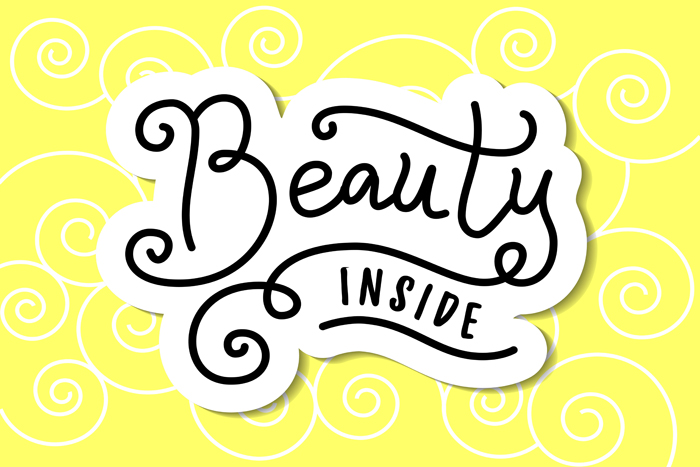Written by: Elizabeth Fedrick, PhD, LPC
“Beauty begins the moment you decide to be yourself” – Coco Chanel
We are constantly exposed to the societal standards of “beauty.” We are bombarded by messages from television, magazines, and social media telling us exactly how we should dress, how our hair, makeup, and nails should look, and even what shape and size we should be. There is an unrelenting pressure to present in a “societally appropriate manner” in order to be considered attractive or desirable. But, did you know that only 5% of the female population has the genetic ability to achieve the media’s suggestion for body size?! I don’t know about you, but I would say that this is a whole lot of unrealistic pressure. Furthermore, I would argue that the belief that beauty is the result of what we look like is not only not true, but also rather offensive.
Though many of us might be tempted to give into these societal pressures and work really hard to present in a specific way, there are a few things to consider before trying too hard to fit the societal mold of “beauty.” First and foremost, societal expectations around beauty are constantly changing and are chosen for us by people in the fashion and beauty industry. The “acceptable” size of women and how they “should” dress has changed with almost every generation. There are constantly new messages about what body part is most appealing and how we should best put these body parts on display. Again, I don’t know about you, but the idea of some random people sitting around a table deciding what size clothes we should wear and how we should wear them seems rather inappropriate. Additionally, this same random group of people telling us which of our body parts are acceptable and which are not, is quite offensive.
Another thing to consider is that research suggests that in comparison to men, women experience heightened levels of social anxiety, prejudice, and unfair treatment due to how we look and dress. This means that a large population of females experience difficulties with comparisons, acceptance from others, and self-esteem based on these guidelines forced upon us. So, let me get this straight, in order to feel confident and to be treated fairly, we must look and dress in a way that society has decided for us?! You know where I am going with this… offensive!
What if as women, we worked together to challenge these specifications of “beauty?” What if we took our power back and started to find our real beauty in other things, such as our character, our personalities, our intellect, and our strengths? What if we celebrated the diversity in our size, shape, color, and styles? What would this mean for our confidence, self-esteem, and acceptance of each other?
The reality is that while there is a whole industry of individuals attempting to dictate the standards of beauty, we as women have the power to choose what we participate in and how we present. However, in order to truly push back, we must change our focus of beauty. We can start doing this by recognizing what social media accounts, magazines, and even television shows create a sense of insecurity and dislike for ourselves and choose not to engage with these things. We can also create a list of things we like about ourselves and that we take pride in, that have nothing to do with how we look. Additionally, we can focus on complimenting other females about their abilities, skills, and strengths, rather than their appearance. While the media is working really hard at sending the message that beauty is about what we look like, you and I both know that beauty is so much more than skin deep. Let’s work together to not only challenge, but reject, these unrealistic (and if I haven’t mentioned, OFFENSIVE) standards of beauty.
**********************************************************************************************************
Dr. Elizabeth Fedrick is a Licensed Professional Counselor and owns a private practice, Evolve Counseling, in Gilbert, Arizona. She specializes in various areas, including depression, anxiety, trauma, relationship issues, and personal improvement. In addition to providing therapeutic services, Elizabeth also teaches Behavioral Health courses for Grand Canyon University.

